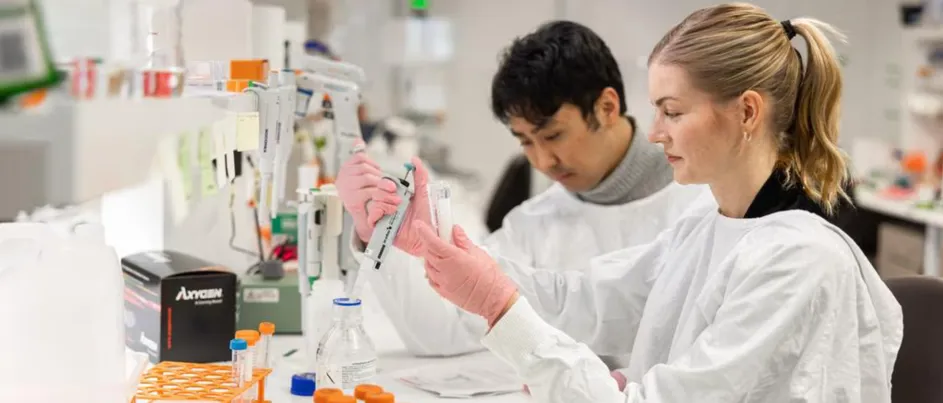

For decades, pancreatic cancer has remained one of the most challenging and devastating diagnoses a person can receive. A disease defined by late detection, limited treatment options, and outcomes that have stubbornly defied progress.
But a recent advancement in early detection offers a shift in perspective, one grounded not in possibility alone, but in real hope built on science, strategy, and collaboration.
In a feature by journalist Natasha Robinson for The Australian, a significant research milestone was brought into focus: the Australian Pancreatic High-RIsk ScrEening (APRISE) Study, the nation’s first dedicated screening program for people with an increased familial or genetic risk of developing pancreatic cancer.
The study, delivered in partnership between The Jreissati Pancreatic Centre at Epworth and Pankind, is trialling surveillance methods for those at higher risk. It also marks Australia’s contribution to the global PRECEDE (Pancreatic Cancer Early Detection) Study, an international effort to improve early detection and shift survival rates for one of the world's toughest diseases.
These advancements have not come overnight. They are the result of sustained, strategic effort, and they represent a fundamental change in how we approach pancreatic cancer. And while there is still a long way to go, it stands as a clear step forward in a disease that has, for too long, lacked options.
We believe this is one of the most significant developments in pancreatic cancer research in recent memory and we want to explain why.
What’s happened and why it matters
For those familiar with the realities of pancreatic cancer, early detection has long felt out of reach. The disease is typically diagnosed at a late stage, often when symptoms begin, and by then, treatment options are severely limited. Surgery, the only potential curative approach, is rarely an option.
That’s what makes this development so significant.
The APRISE Study is designed to identify pancreatic cancer in people with an increased familial or genetic risk, before symptoms appear, when outcomes can be meaningfully improved. It also places Australia in alignment with the global PRECEDE study, which aims to lift five-year survival rates from 13% to 50% within a decade.
What we do know is that there are certain patients that are at very high risk for developing pancreatic cancer...we know that outcomes can be improved significantly the earlier we find this disease and are able to treat it, particularly if we can find it when it’s localised.
- Professor Andrew Metz, co-ordinating principal investigator of the study.
Early data from the international PRECEDE study is already showing results. Between 60 - 80% of cancers detected through screening are found at Stage 1, compared to just 15% diagnosed early in the general population. In these cases, average survival can increase from 1.5 years to as long as 10 years.
This places Australia at the forefront of world-leading pancreatic cancer screening and research.
- Metz
Beyond detection - new treatment possibilities
This shift is not just about detecting pancreatic cancer earlier. It’s also about what becomes possible once we do.
Thanks to advances in molecular profiling, researchers are identifying genetic changes in tumours that can be targeted with precision therapies. Just three years ago, only 10% of people with pancreatic cancer had what’s considered a “druggable” mutation. Today, that number is more than 60%.
Finally, we’ve reached a tipping point. A disease that was once thought to be emblematic of futility is about to change quite dramatically.
- Professor David Thomas, Chief Science and Strategy Officer at Omico.
Survival rates are beginning to reflect that shift. Among patients enrolled in clinical trials for targeted therapies:
-
Median survival has increased from 7.5 to 12.1 months
-
Some are still alive six years after diagnosis
-
And for a small subset eligible for immunotherapy, median survival reaches 22.5 months, with more than 30% alive at five years
These are outcomes that were unthinkable only a few years ago.
Pankind’s role: from funding to impact
This progress doesn’t happen in isolation. It requires alignment, leadership, and sustained support.
Pankind is proud to be the lead funder of the APRISE study, committing $500,000 through our Early Detection Initiative. It’s our largest single research investment to date, and one we made knowing the potential impact early detection could have.
This early detection program embodies our vision of a fairer system for people impacted by pancreatic cancer, where those most at risk aren’t left behind.
- Michelle Stewart, Pankind CEO
We’re also making it easier for Australians to understand their risk. Our Family History Checker is a free, online tool that helps individuals identify inherited risk factors and, where appropriate, connect with screening programs like APRISE. It’s a simple but powerful tool, designed to help close the gap between research and real-world access.
If you’re found to be eligible, you may be referred to the APRISE Study- now recruiting nationwide and supported by leading hospitals across Australia.

Worried about pancreatic cancer in your family?
By answering a few quick questions about your family history, we can check your family risk of developing pancreatic cancer.
What still needs to change and how
This is a landmark moment for pancreatic cancer. But we are not yet where we need to be.
For real, lasting change, early detection must become embedded in standard care. Access to genomic testing and clinical trials must expand. And investments must continue in the research that offers not just theoretical promise, but practical, life-altering outcomes.
At Pankind, this is where our focus remains.
Through our Early Detection Initiative, we’re committed to supporting research that accelerates answers, improves outcomes, and helps reshape the story of pancreatic cancer. Our work continues, not just to fund what’s next, but to ensure people can access it.
Progress like this doesn’t happen by chance. It happens through investment, collaboration, and a commitment to making sure people at risk aren’t left behind.
The Australian article by Natasha Robinson: Hope rises in pancreatic cancer treatment revolution


